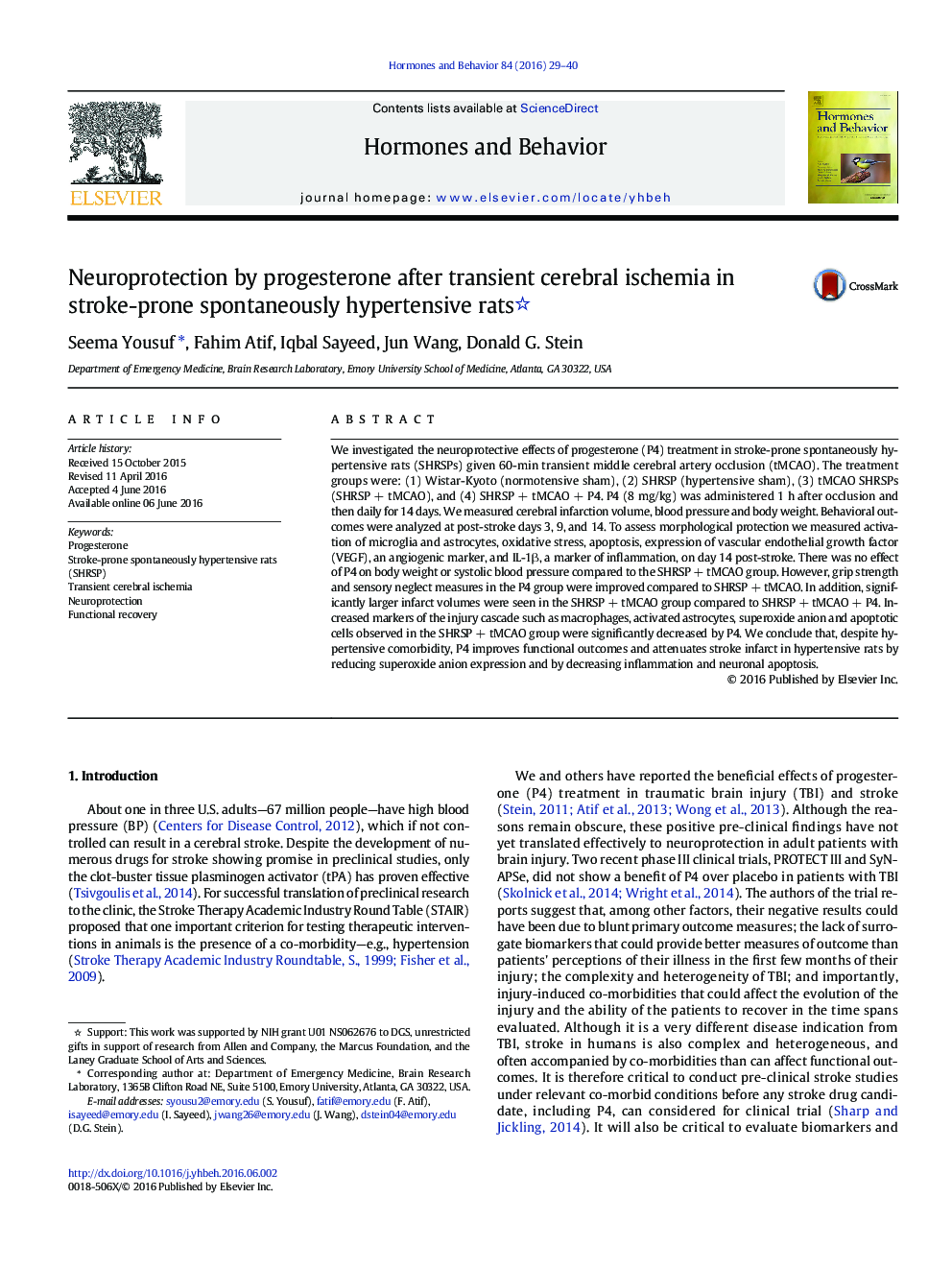| کد مقاله | کد نشریه | سال انتشار | مقاله انگلیسی | نسخه تمام متن |
|---|---|---|---|---|
| 323028 | 540468 | 2016 | 12 صفحه PDF | دانلود رایگان |
• We tested progesterone in stroke under co-morbid condition.
• Stroke prone spontaneously hypertensive (SHRSP) rats were used.
• Progesterone inhibited apoptosis and limited severity of cerebral infarct.
• Progesterone did not alter blood pressure but did improve recovery of function.
We investigated the neuroprotective effects of progesterone (P4) treatment in stroke-prone spontaneously hypertensive rats (SHRSPs) given 60-min transient middle cerebral artery occlusion (tMCAO). The treatment groups were: (1) Wistar-Kyoto (normotensive sham), (2) SHRSP (hypertensive sham), (3) tMCAO SHRSPs (SHRSP + tMCAO), and (4) SHRSP + tMCAO + P4. P4 (8 mg/kg) was administered 1 h after occlusion and then daily for 14 days. We measured cerebral infarction volume, blood pressure and body weight. Behavioral outcomes were analyzed at post-stroke days 3, 9, and 14. To assess morphological protection we measured activation of microglia and astrocytes, oxidative stress, apoptosis, expression of vascular endothelial growth factor (VEGF), an angiogenic marker, and IL-1β, a marker of inflammation, on day 14 post-stroke. There was no effect of P4 on body weight or systolic blood pressure compared to the SHRSP + tMCAO group. However, grip strength and sensory neglect measures in the P4 group were improved compared to SHRSP + tMCAO. In addition, significantly larger infarct volumes were seen in the SHRSP + tMCAO group compared to SHRSP + tMCAO + P4. Increased markers of the injury cascade such as macrophages, activated astrocytes, superoxide anion and apoptotic cells observed in the SHRSP + tMCAO group were significantly decreased by P4. We conclude that, despite hypertensive comorbidity, P4 improves functional outcomes and attenuates stroke infarct in hypertensive rats by reducing superoxide anion expression and by decreasing inflammation and neuronal apoptosis.
Journal: Hormones and Behavior - Volume 84, August 2016, Pages 29–40
